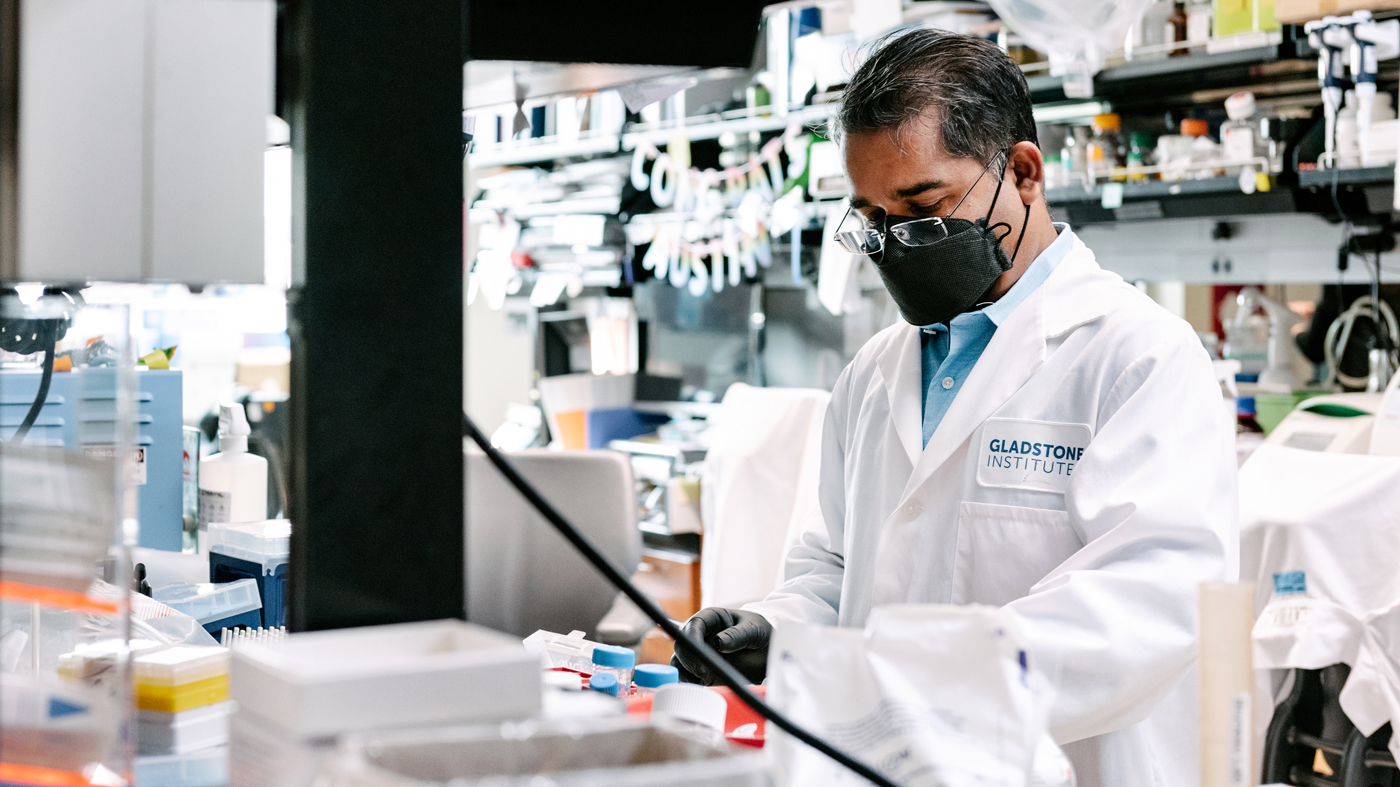Swetansu Hota, PhD, studies the genetic and molecular mechanisms that produce healthy hearts and brains, and what makes them go awry and cause disease. He focuses on a group of proteins called chromatin remodeling factors, which regulate the activity of genes by loosening or tightening the winding of their DNA. He made the surprising discovery that removing one of these proteins could turn heart cells into brain cells. His work is shedding new light on how cells maintain tissue-specific characteristics, and uncovering shared mechanisms between congenital heart and brain diseases.
Disease Areas
Areas of Expertise

Lab Focus
Research Impact
Hota’s research focuses on chromatin structure and remodeling and how these mechanisms help cells maintain tissue-specific characteristics as they mature. Chromatin is the combination of DNA and proteins that wrap the genome into an organized “ball of yarn” that fits inside the cell’s nucleus. To activate specific genes, cells loosen the chromatin surrounding these genes thanks to a combination of proteins known as chromatin remodeling complexes. Hota’s graduate work showed how chromatin remodeling complexes use ATP, the cell’s energy currency, to unwind or rewind DNA, thus making genes more or less likely to be turned on.
As a postdoc working on heart development, he made the surprising discovery that removing one component of the chromatin remodeling complex turned cultured cells normally destined to become heart cells into brain cells. This finding has important implications for our understanding of how gene activity becomes deregulated in cardiovascular disease.
Professional Titles
Visiting Scientist, Gladstone Institutes
Bio
Swetansu Hota, PhD, is a research investigator at Gladstone Institutes. He initially joined Gladstone as a postdoctoral scholar in 2011 to study the genetic underpinnings of congenital heart disease in Benoit Bruneau’s lab. He holds Master’s degrees from Orissa University of Agriculture and Technology and the Indian Institute of Technology, both in India. He earned his PhD in biochemistry and molecular biology at Southern Illinois University, Carbondale.
Hota’s expertise is in chromatin structure and how it affects the activity of genes. His current goals are to define the composition of large protein aggregates known as chromatin remodeling complexes in young cells destined to become heart or brain cells. His ultimate aim is to understand how mutations in these complexes lead to congenital heart defects and abnormal brain function.
How Did You Get Your Start in Science?
After high school, I was interested in physics, but a plant biology teacher had a huge influence on me studying biology.
Honors and Awards
2023 Travel Award, Weinstein Conference, San Diego, California
2021 Career Development Award, American Heart Association
2020 Distinguished Achievement in Science Award, Gladstone Institutes
2018 Best Poster Award, Cardiovascular Research Institute (UCSF-CVRI) Retreat
2017 Ruth L. Kirschstein National Research Service Award (T32), National Cancer Institute
2013 Bob and Linda Mahley Career Advancement Award, Gladstone Institutes
2013 Postdoctoral Award, Tobacco Related Disease Research Program
2013 Postdoctoral Award, American Heart Association
2003 Initiative Award, AstraZeneca R&D
2002 Solver Award, Innocentive.com
1998 Graduate Aptitude Test in Engineering, Ministry of Education, Government of India
Publications
Contact
Swetansu Hota
Email
415.734.2819

